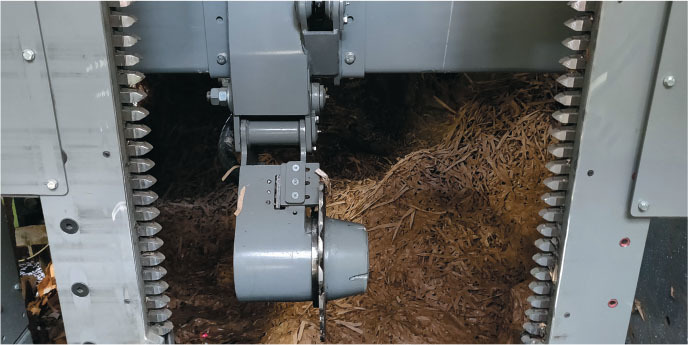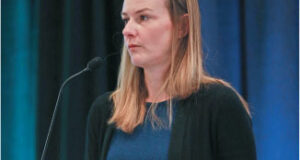
Sustainability has been a hot topic in the paper industry for several decades. This has prompted many companies to assess their operations, eliciting a transition toward more sustainable practices in the whole value chain of paper and cardboard products.
Among these changes are increased use of recycled paper and cardboard as raw material, as well as initiatives to improve waste management, one of them being the zero landfill principle. When adopting the principle, many may question whether sustainability can have negative effects on productivity and output. With the right tools, more sustainable practices can be highly productive.
COMBINING SUSTAINABILITY AND EFFICIENCY
The zero landfill principle—which dictates that companies aim to eliminate any waste SAARELAINEN from their production processes from ending up at landfills—is becoming more widely adopted in the paper industry. Utilizing all material to the greatest extent supports the circular economy mindset. In the paper industry, the zero landfill principle can be applied to both raw material acquisition and waste management. To ensure a better future for the people and the planet, the industry must increase its use of recycled raw materials. In addition, it needs to manage process-derived waste materials, such as pulper reject, efficiently and sustainably.
A more sustainable option doesn’t need to mean any lesser production abilities. On the contrary, improving the sustainability of the production has potential to improve the efficiency of the process. For many years Cross Wrap, a Finnish company specializing in bale wrapping and opening machines, has developed its solutions to better respond to its clients’ needs. As sustainability initiatives have become increasingly prevalent in the paper industry, Cross Wrap has also turned its vision to providing efficient automated machinery to support the smooth production of sustainable paper products.
 The Cross Wrap dewiring machine removes metal wires from the process before the pulper.
The Cross Wrap dewiring machine removes metal wires from the process before the pulper.REMOVING METAL WIRES BEFORE PULPING
Even though using recycled paper as a raw material supports the zero landfill principle and positively contributes to the circular economy, it can complicate the production process slightly. Regardless of the type of wastepaper used to create recycled paper products, the tied bales need to be opened. This process can be both time-consuming and dangerous if done manually. And what to do with the metal wires? Should they go to the pulper to be used in the ragging process?
Cross Wrap has a clear answer to any questions paper mills can have when it comes to bale opening—or as experts call it, bale dewiring. Cross Wrap’s Dewiring Machine automatically opens bales of any recycled paper material, as well as gathers and coils the metal wires. When the wires are removed from the process before pulping, they are much easier to recycle.
Moreover, removing the wires from the feedstock can provide benefits for the pulping process and the machinery used in it. Maintenance costs and any production down time can diminish when metal does not end up in to the pulper. Dewiring the bales can also help mills handle hard-to-recycle pulper reject. If the metal wires are mixed with other waste in the pulper during the ragging process, the ragger rope becomes extremely hard to recycle due to the number of different materials becoming tangled together.
BALE IT AND WRAP IT
After the pulping process, a question still remains about the final resting place of the pulper reject. Utilizing pulper reject and other process-derived waste materials for energy recovery is another viable option to efficiently use it and handle it according to the zero landfill principle.
If incinerating and recovering the energy from pulper reject is not possible at the site where the waste is created, it must be transported to another location. To ease the transportation and to make it as cost-effective as possible, the material could be packaged.
With the Cross Wrap Bale Wrapper, the pulper reject can be wrapped neatly to make it more easily manageable. Not only are rectangular and wrapped bales easier to store safely on site without the need of additional buildings or roofing, they are also more manageable during transportation.
Baling and wrapping the material helps to keep the waste from spilling or littering. The air-tight packaging also slows fermentation, which ensures that the energy value of the material is maintained more efficiently compared with loose reject. Thus, no energy recovery potential of the material is wasted. Moreover, the rectangular bales are easier to transport to an energy recovery plant. Using waste as a reusable fuel is a great way to reach zero landfill goals and avoid unnecessary landfilling.
LESS WASTE, MORE PRODUCTIVITY
Reducing the amount of waste ending up at landfills is important for reaching sustainability-related goals. Having the best technical solutions to support both the feedstock process and waste management can boost the overall productivity, safety, and reliability in paper and cardboard recycling operations. The zero landfill principle should serve the needs of companies and the environment.
 Paper 360
Paper 360

